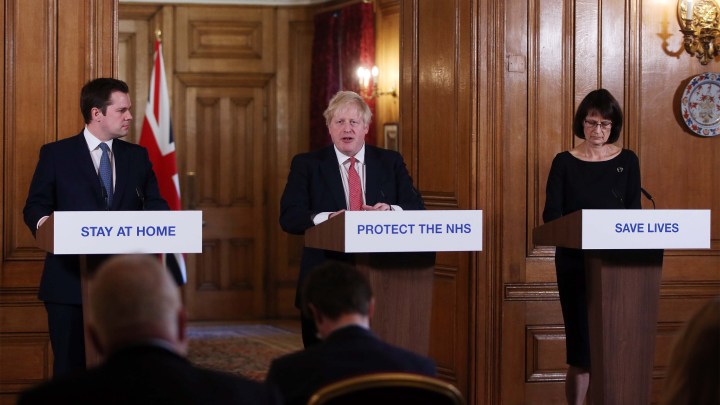
Britain’s warm relations with China cool over the coronavirus
Britain’s warm relations with China cool over the coronavirus

The coronavirus crisis has strained relations between China — the source of the pandemic — and Europe, one of the regions worst hit by the disease. The strains are particularly evident in Britain, where, before the crisis, the government had been forging closer economic links with the Chinese.
Could the pandemic spell the end of what a former British finance minister called a “golden era” in Anglo-Chinese relations?
The British government is furious about many aspects of China’s behavior over COVID-19. The reopening of the live-animal markets that are widely believed to have been the original source of the infection and the attempt to blame the U.S. military for the disease have angered British ministers. But, unsurprisingly, the biggest bone of contention is Beijing’s failure to report the outbreak early enough to stop it from spiraling into a pandemic. Foreign Secretary Dominic Raab declared at a news conference that Anglo-Chinese relations have suffered.
“We can’t have business as usual after this crisis,” Raab said. “We’ll have to ask the hard questions about how it came about and how it could have been stopped earlier.”

Britain’s leverage with China might on the face of it seem minimal. The U.K. does much less business with China than do the U.S., Germany or Australia, and yet, says Professor Rana Mitter, director of Oxford University’s China Centre, Beijing and London had been getting closer.
“Although there have been ups and downs, for the last few years, the relationship between Britain and China has been quite warm in various ways,” Mitter said.
The Brits, for example, agreed to allow the Chinese telecom giant Huawei to bid for some of the work on the U.K.’s new 5G mobile phone network, a decision that enraged the United States and other close allies. And the Brits have already let China invest in another part of the U.K.’s crucial infrastructure — the nuclear power industry.
“Taking Huawei and taking investment in nuclear power enables China to get something that it values a great deal, which is to go around the world and say, ‘Why don’t you team up with us because the Brits have done it and they seem to find it fine,’ ” Mitter said.

Critics of both deals say now is the time to pull the plug. Matthew Henderson, a former diplomat now with the pro-democracy think tank the Henry Jackson Society, says the incompetence and deceit of the Chinese Communist Party over the coronavirus show vividly that it cannot be trusted.
“If something goes wrong with the nuclear industry, what sort of trouble are you in? If something goes wrong with Huawei, suddenly our 5G network collapses. We cannot afford to let this happen,” he said.
Henderson claims it was always misguided to cozy up to a regime whose long-term goal is to undermine and supplant Western-style democracy and the rule of law.
“The so-called golden era in relations was always just a dream. We are now waking up. Britain must pull back from Beijing,” Henderson said. “If we do not, how can our allies see us as anything other than flawed and craven and captured?”
But scrapping the nuclear deal and rebuffing Huawei could be immensely expensive for an economically-battered Britain, especially as it severs its ties with the European Union and needs all the new trading partners it can get.
There’s a lot happening in the world. Through it all, Marketplace is here for you.
You rely on Marketplace to break down the world’s events and tell you how it affects you in a fact-based, approachable way. We rely on your financial support to keep making that possible.
Your donation today powers the independent journalism that you rely on. For just $5/month, you can help sustain Marketplace so we can keep reporting on the things that matter to you.


















